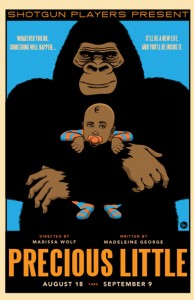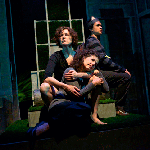YOU ARE VERY RUDE
Young men think old men are fools;
but old men know young men are fools.
George Chapman
I was sitting in a closed booth in the ladies room when I heard “Hey what are you doing?” from the next booth. I didn’t know who the voice belonged to but I didn’t want to be rude so I said, “I am going to the toilet. What are you doing?”
The voice in came back with, “Sorry Joe. Some idiot in the next booth is horning in on the conversation. I’ll text you instead.” The toilet flushed, I heard the door open and footsteps recede.
I was furious. What right did that young lady have to criticize ME? I wasn’t the one talking on the phone in an inappropriate place. How could she be so inconsiderate?
That is the kind of reaction your generation cannot understand. You were not brought up in a society that used phone booths for telephone conversations and didn’t carry instruments of communication into a rest room.
We were taught that it was rude to ignore someone who asked you a question. And speaking of questions, how many times have I said to someone your age, “Isn’t this a nice day?” and you answer with another question. “Are you kidding? Don’t you see the fog?” If I ask you to please pass the potatoes, I don’t want to hear, “Do you really want potatoes?” I want you to give me the potatoes. I said please, didn’t I?
It’s all about what we were taught by our parents. The difference is that you have drifted a long way from what we taught you and we can’t understand it. You changed our rules and we don’t like it. We have lived through a lifetime of challenges and we think we have figured out how to solve them. We watch you fussing over things like the clean air and dog waste and frankly, we think your generation is making a big deal over nothing. We forget that our parents got annoyed with us when we didn’t do things their way, too. And we forget how hurt we felt when they snapped at us.
When I graduated from college I was absolutely certain I knew everything and my mother knew nothing at all. I came home from school and said,”Okay Mother, get dressed. I am taking you to the art museum to enlarge your horizons.”
My mother looked at me as if I had just told her to set fire to the house. “You leave my horizons right where they are, Lynn Ruth.” she said.
And I thought, “Why is she so annoyed? I wanted to give her a treat.”
I am almost 80 years old and when a clerk young enough to be my grandchild calls me by my first name, I am very insulted. My head tells me that there is absolutely nothing wrong with addressing your elders by their first name, but my gut has told me this is rude for so many years that I don’t even think before I snap. I would agree with you immediately that this is a silly formality. But I cannot help snarling when you address me as Lynn Ruth. “Who do you think you are?” I’ll say and you will look at me as if I am brain dead.
Proper forms of address are hammered into us when we are young and we often use them without thinking. My generation always called younger people endearing names. Whenever I see you, I will call you sweetheart. It never occurred to me that this was demeaning or insulting until I read about a bank teller who was sued by its customers for calling them all darling. I guess it works both ways.
I was taught that you stand up when someone older or frailer needs a seat. This isn’t something young people in the United States do but in Britain it is as automatic as saying please and thank you. (Something else Americans don’t do much anymore.) I was seated in the underground when I saw a mother standing with a three year old child in her arms. I stood up. She looked at me and was horrified. No way was she going to take the seat of someone old enough to be her grandmother. I tired to insist but she insisted louder until finally the guy across the aisle gave her his seat and I remained in mine. The interesting thing was that we each were just a bit annoyed with the other. We all like to think we are the ones acting correctly don’t we?
Then there are table manners. When my generation sees someone eating without their hand in their lap, you can see the distaste as clearly on our faces as if we spit at you. Now everyone my age and yours knows this is a trivial formality and good manners at the table are a cultural thing that really make very little difference in a culture as diverse as ours. Still, when I see someone chewing with his mouth open, or reaching across me to grab a platter, I am miffed. That person cannot figure what on earth he did that was offensive. And I am not going to tell him.
My generation was taught to be polite.
I for one am a lot happier when I am not furious and I don’t like anyone criticizing me, so I understand how you feel when we get annoyed with you. The trick is to put yourself in our shoes. When your mom reprimands you for something that seems ridiculous, remember that you love your habits as much as she loves hers. You would be pretty upset if someone grabbed your cell phone and told you it was rude to text while waiting in line at the movies. The good news is that when you are ninety, can’t hear a word anyone says and need a walker to get where you want to be, no one will care if you get angry at anything at all. They will think you are adorable. It’s just one more privilege of age.











